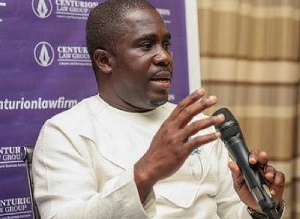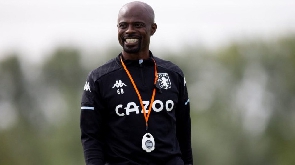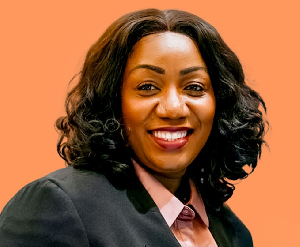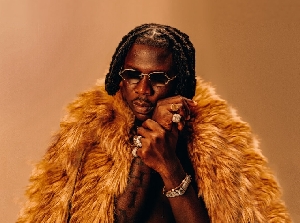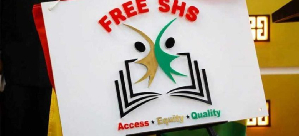ELIZABETH OHENE AND “COPYRIGHT INFRINGEMENT” – A VARIATION ON THE THEME OF “PLAGIARISM”
Coming in the stupefying wake of the Haruna Iddrisu plagiarism debacle, the decision of the management of Ghana’s Daily Graphic, the oldest government-owned newspaper, to sue one of the paper’s former editors for copyright infringement, adds an intriguing meaning to the legal and academic concept of “plagiarism” in ways that may yet redound to the strength of the country’s fledgling democracy.The reason for the preceding observation lies squarely in the fact that until very recently, the issue of plagiarism in academic circles had not provoked much debate in the mainstream of Ghanaian society. Partially, this was due to the fact that until the auspicious accession of the New Patriotic Party to the helm of national affairs, or governance, some six years ago, press freedom, both academic and social, virtually did not exist. For with the coming to power of the NPP also witnessed the summary abrogation of the odious Criminal Libel Law, a colonial judicial relic which was inherited from Britain and which, during much of the 1930s, Dr. J. B. Danquah and his elder brother, Osagyefo Nana Sir Ofori-Atta I, had vigorously fought to have repealed but to no avail.
Indeed, so averse to the Criminal Libel Law was the putative Doyen of Gold Coast and Ghanaian politics that Dr. Danquah was to join a delegation, headed by King Ofori-Atta I, to petition the British Colonial Office, in London, against its inimical and regressive implementation. Shortly thereafter, the Criminal Libel Law would be summarily applied to effect the deportation of then-future President of the Republic of Nigeria, Dr. Nnamdi Azikiwe and Sierra Leone’s Mr. Bankole Timothy, two of the foremost African journalists in the Gold Coast of the 1930s.
But that President Kwame Nkrumah, after assuming the reins of governance in postcolonial Ghana had flatly refused, or deliberately failed, to repeal the Criminal Libel Law, speaks dourly of the autocratic political legacy bequeathed Ghanaians by the proverbial African Show Boy. It is hardly surprising, however, that successive military governments since the momentous and salubrious overthrow of the Convention People’s Party flagrantly failed to repeal the Criminal Libel Law, though one is almost dumbfounded by the apparent fact that the civilian and democratically elected governments of the Progress Party (PP), led by Dr. K. A. Busia, and the Nkrumaist-leaning, albeit liberal, People’s National Party (PNP), chaperoned by Dr. Hilla Limann, while generally temperamentally liberal towards the media, had also woefully failed to repeal the Criminal Libel Law. On this score, the pertinent indulgence of Ghanaian legal lights, particularly those with expertise in Media Law, is direly craved.
Having duly registered the preceding, germane, observations, the logical imperative, or question, thus becomes: Just what makes Ms. Elizabeth Ohene’s decision to publish a swatch of articles that she wrote and published in the Daily Graphic, as well as The Mirror, during some two decades that she worked for these two government-owned newspapers constitute a “flagrant infringement of copyright laws,” as management attorneys for the Graphic Communications Group Limited (GCGL) maintain?
Indeed, if as the December 11, 2006 report published on the Daily Graphic’s website, Graphic Ghana, titled “Graphic Sues Former Editor” alleges, Ms. Ohene took cavalier liberties in compiling and publishing work which may be aptly classified as “work produced on commission or hire,” then Ms. Ohene has some serious explaining to do, as it were. For, even more grievous is the implication that Ms. Ohene might have published work, or articles, of whose intellectual ownership she was only a partial owner or one of several owners, particularly editorials written for both the Daily Graphic and its sister newspaper, The Mirror, during the period that the defendant, who also currently happens to be a Minister of State at the Presidency (whatever that means), was a paid staff or employee of these two newspapers.
But even more disturbing would be a scenario whereby Ms. Ohene were also faulted for publishing as her own, or private intellectual property, material that she had absolutely no hand in producing.
Personally, I have yet to read any of the two compilations, titled, respectively, “Stand Up And Be Counted” and “Thinking Allowed,” which purport to shed critical light on the so-called June 4th , 1979 Revolution and the civic governance period between 1978 and 1981, both of which period also had Flt.-Lt. Jeremiah John Rawlings as a major player, although I have read tidbits from the Accra Daily Mail, including one by a local Ghanaian correspondent of the British Broadcasting Corporation (BBC), Kwaku Sakyi-Addo, which billed itself as a “Book Review,” perhaps by contemporary Ghanaian standards, but which was in reality a paean, or glowing tribute, to Ms. Elizabeth Ohene. Which is not to imply that the former evidently firebrand editor of the Daily Graphic did not deserve to be serenaded, or even panegyrized, except that those of us professionals in the field who have been reviewing books for umpteen years now envisage the critical artistry that is the purview of “Book Reviews” quite differently.
And while we may not be privy to the legal quiddities contained in the GCGL lawsuit, we are almost tempted, knowing what we do know about bureaucratic red-tape in Ghana, to speak far much less about raw envy and jealousy, Ms. Ohene might have been forced by circumstances to breach the intellectual property rights of her former employer vis-à-vis material that she felt, by dint of intimate personal involvement, to have constituted her own private property.
Ordinarily, seeking permission to compile and publish material which Ms. Ohene produced while a management employee, or editor, of the Daily Graphic ought to have been pro forma, or mere formality, although under certain contractual exigencies such authorization might also have spelled out the relationship of the Graphic Communications Group Limited in terms of the distribution or the sharing of royalties accruing from Ms. Ohene’s compilation and sale of the literary material in dispute.
But that the GCGL, or the plaintiff, lodged its grievance with the National Media Commission (NMC), composed of highly competent media practitioners and experts, ought to give some comfort to both parties to the lawsuit, particularly regarding judicial objectivity.
In the end, though, both plaintiff and defendant appear to have a strong, or valid, case. In sum, if Ms. Ohene was convinced that publishing the remarkable corpus of her literary output would vindicate her purportedly enviable role in Ghana’s postcolonial struggle for freedom and justice, at all levels of our society, then she would appear to have every right of doing so.
On the other hand, if the GCGL management firmly believes that in publishing her compilations without its express authorization, Ms. Ohene had committed the justiciable offence of “double-dipping,” or brazenly and opportunistically attempting to profit doubly from the “illegal” sale of material for which she had already been fairly compensated (and this appears to be the case) and even a remarkable portion of which might not have been wholly produced by the defendant, then, of course, the GCGL management has a right to protect the Corporation from being fleeced, as it were.
*Kwame Okoampa-Ahoofe, Jr., Ph.D., teaches English and Journalism at Nassau Community College of the State University of New York, Garden City. He is a former freelance reporter and book-review editor for “The New York Amsterdam News.”

Views expressed by the author(s) do not necessarily reflect those of GhanaHomePage.

Views expressed by the author(s) do not necessarily reflect those of GhanaHomePage.







